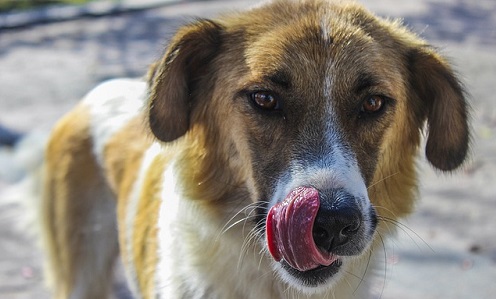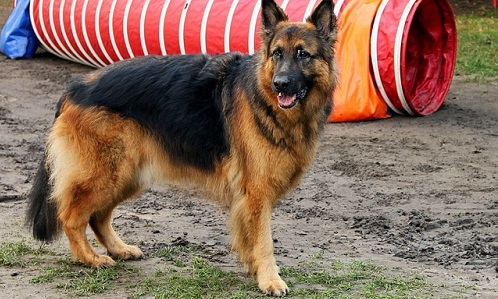Neutering your dog is beneficial in a number of ways. The surgery prevents canine overpopulation, testicular cancer, and canine aggression, to name a few. While most pet owners ultimately make the decision to neuter their pup, they may be discouraged when they learn about the price.
So how much is dog neutering? Luckily, getting your dog fixed is completely affordable. There are probably even some low-cost neutering options in your area, depending on where you live. With the right knowledge and resources, you’ll be able to schedule your dog for a neuter appointment without breaking the bank.
What is Dog Neutering?
Dog neutering, or fixing, refers to the sterilization of male dogs. When female dogs are sterilized, the procedure is referred to as spaying. Getting your pet neutered or spayed is beneficial for their behavior and overall wellness. Of course, fixing pets contributes to the prevention of unwanted puppy litters. Every year, millions of healthy dogs and cats will be put down due to overpopulation. There simply aren’t enough homes to adopt all the puppies born from unsterilized dogs. It’s up to pet owners to do their part in preventing canine overpopulation by neutering their pups.
How Much Does it Cost to Neuter a Dog?
The cost of dog neutering typically costs between $50 to $250. The exact cost depends on the size and age of your pet and the type of clinic where the procedure is completed.
Some animal hospitals may charge up to $250 to neuter a male dog. Spaying a female dog is a more complicated procedure which will usually cost between $50 to $175. Modern neuter procedures can be performed with the use of lasers. This type of canine neuter usually runs between $150 and $500.
Although the majority of pet owners are onboard with spaying or neutering their dogs, some may be intimidated by the cost. The cost of neutering a dog will depend on:
- Where you live
- The size of your pet
- The breed of your pet
- Your pet’s age
- Whether your pup has entered puberty
- Any underlying health conditions your pet has
- The complexity of the operation
- Whether or not anesthesia is used
- Specific policies of a vet clinic

Although neutering a dog costs money upfront, the operation will save you cash in the long run. The price and time commitment of caring for a litter of puppies is much higher than neutering a dog!
What’s Included in the Cost of Neutering a Dog
When a dog is neutered, a vet makes an incision near the scrotum and removes both testicles through the incision. Stitches are typically used to close the incision site after the operation. In most cases, general anesthesia is administered to pups who are neutered, but any underlying health conditions may impact this decision. The cost of neutering a dog usually comes at a flat rate and includes each of these components.
Additional Costs of Neutering Your Dog
Some pet owners may be charged an additional fee for neutering or spaying if their pup is significantly overweight or, in the case of female dogs, pregnant or in heat. Additional costs for neutering an overweight pet will usually be around $25, while the upcharge for spaying a pup who is pregnant or in heat will range from $50 to 100.
Preoperative blood work may be recommended to prevent complications with the surgery or anesthesia which can cost up to $50. After surgery, some dogs will be prescribed medication which is typically an additional charge.
Low-Cost Dog Neutering
If you can’t swing the cost of neutering your dog at a veterinarian clinic or pet hospital, some animal shelters will perform the operation for under $50. Animal shelters like the Humane Society are able to offer low-cost neutering because they receive subsidies. You may even encounter a student working at a pet shelter who can perform the operation for free. Depending on where you live, Pit Bulls (and Pit Bull mixes) might be able to get neutered for free to prevent extreme aggression.
Do some research on animal hospitals, shelters, and vet clinics in your area to compare prices for neutering your dog. The ASPCA (American Society for the Prevention of Cruelty to Animals) has an online search tool that helps pet owners find affordable neuter clinics in their area. Animal Liberation Front is also an excellent resource for free and low-cost neuter locations by state. A low-cost surgery does not necessarily mean that your pup will receive inferior care.
Why You Should Neuter Your Dog
If you just brought a new puppy home to your family or are considering adopting one soon, one of the most important decisions you’ll make is to spay or neuter your pet. The long list of benefits to neutering a dog include:
- Prevention of canine overpopulation
- Protection from prostate and testicular tumors
- Diminished aggression, barking, and inappropriate mounting
- Reduced risk of roaming
- Reduced tendency to “mark his territory”
- An overall more well-behaved pet
A major component of being a pet owner involves preventing them from having unwanted litters. It is your responsibility to get your dog neutered, no matter the price. This is why it’s essential to thoroughly understand the costs associated with neutering a pet before committing to adoption. Neutered dogs contribute to helping the homeless pet crisis, and it’s vital that pup owners do their part.
Misconceptions About Neutering a Dog
 Some people believe that spaying or neutering a pet will cause canine obesity. However, no studies have shown that fixing a dog changes their metabolism. Overfeeding a dog or not providing him with adequate exercise will contribute to obesity. It’s up to pet owners to make sure their pup gets the right amount of food and physical activity.
Some people believe that spaying or neutering a pet will cause canine obesity. However, no studies have shown that fixing a dog changes their metabolism. Overfeeding a dog or not providing him with adequate exercise will contribute to obesity. It’s up to pet owners to make sure their pup gets the right amount of food and physical activity.
Although neutering a dog will usually reduce and prevent aggression and other unwanted behaviors caused by testosterone, the surgery is not a quick fix for all canine behavioral issues. A neuter surgery does not guarantee that your dog’s temperament will change. While neutering a male pup reduces testosterone levels, the hormone will not be eliminated entirely. Also, if your pet has already developed some habitual behavioral traits, it’s unlikely they will be reversed by the operation. Overall, the effects of neutering a canine will depend mostly on your pet’s history as well as his unique personality and physiology.
When to Neuter Your Dog
Male dogs are usually fixed around six months of age, but puppies as young as eight weeks old can be safely neutered as long as their health is in good condition. Dogs can also be neutered as adults. However, operating on older dogs poses a slightly higher risk of complications.
If dogs are fixed before they hit puberty (around six months of age), they will typically grow to be larger than dogs that get the procedure after puberty. This is likely because testosterone impacts when a dog’s bones should stop growing, and with lower levels of the hormone, some canines may continue to grow.
Most veterinarians suggest that female dogs get spayed at six months because the operation requires general anesthesia. Putting small pups under anesthesia poses more risks than with slightly older dogs. Also, some vets recommend that dogs hit puberty before getting spayed, which is usually between five and nine months of age. However, modern technology and advanced protocols allow many vet clinics to safely anesthetize even the tiniest pets. A pet hospital with a highly trained staff may be equipped to spay young dogs at two to three months of age. Talk to your vet about the best time to spay or neuter your pup.
Helping Your Pet Before & After Surgery
Your vet clinic or pet hospital will give you important pre-surgical instructions prior to the neuter procedure, and it’s crucial that you follow them. In general, dog owners should avoid giving their pet any food after midnight on the night before a neuter appointment. However, puppies need sufficient nutrition, so your veterinarian may not advise fasting for very young dogs.
The vet staff will also provide you with postoperative care instructions after neutering your dog. Some pups will experience discomfort or pain following surgery, but your veterinarian will take all necessary precautions to prevent this from happening. To help your dog recover safely and comfortably after being neutered:
- Create a quiet, comfortable place for him to lie down
- Minimize exercise for up to two weeks after surgery
- Prevent him from licking the incision site with an Elizabethan collar, if needed
- Avoid bathing him for ten days or more, if possible
- Check on the stitches regularly to make sure the incision is healing properly
- Contact your vet if you notice redness, swelling, or discharge at the incision site
- Contact your vet if he is lethargic, vomiting, or has a decreased appetite
A neuter operation should not come as a surprise to any pet owner. Luckily, the surgery won’t be a medical or financial emergency, so you’ll be able to plan accordingly. The decision to become a dog owner should not be taken lightly. Pet parents are responsible for ensuring the health, happiness, and safety of their fur babies, and neutering a pup is part of the job.




